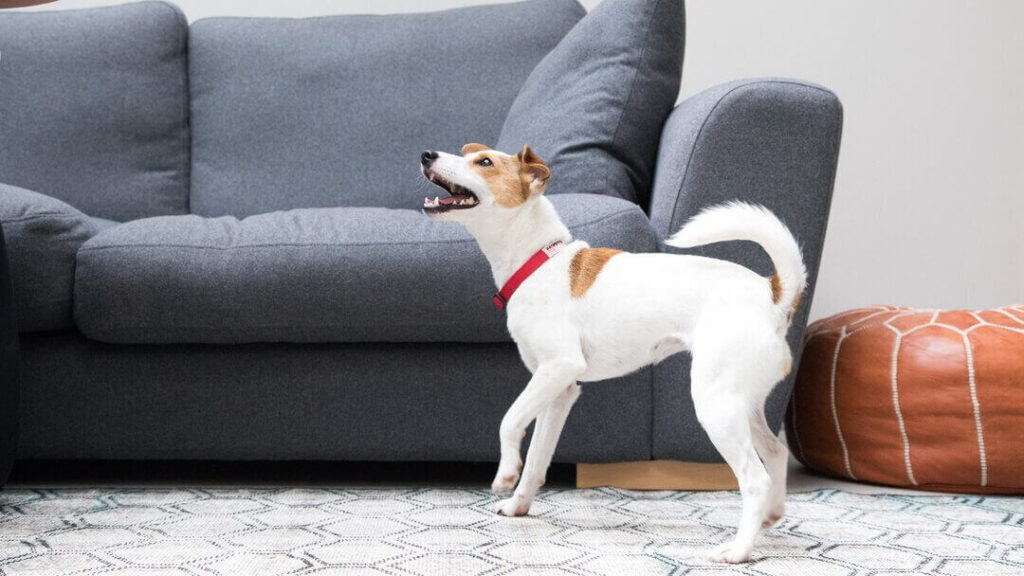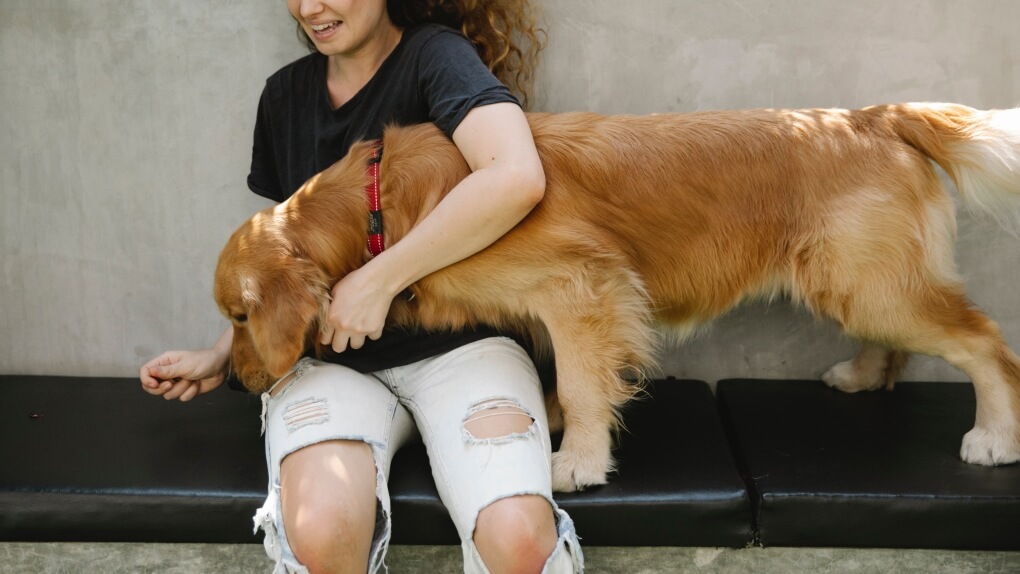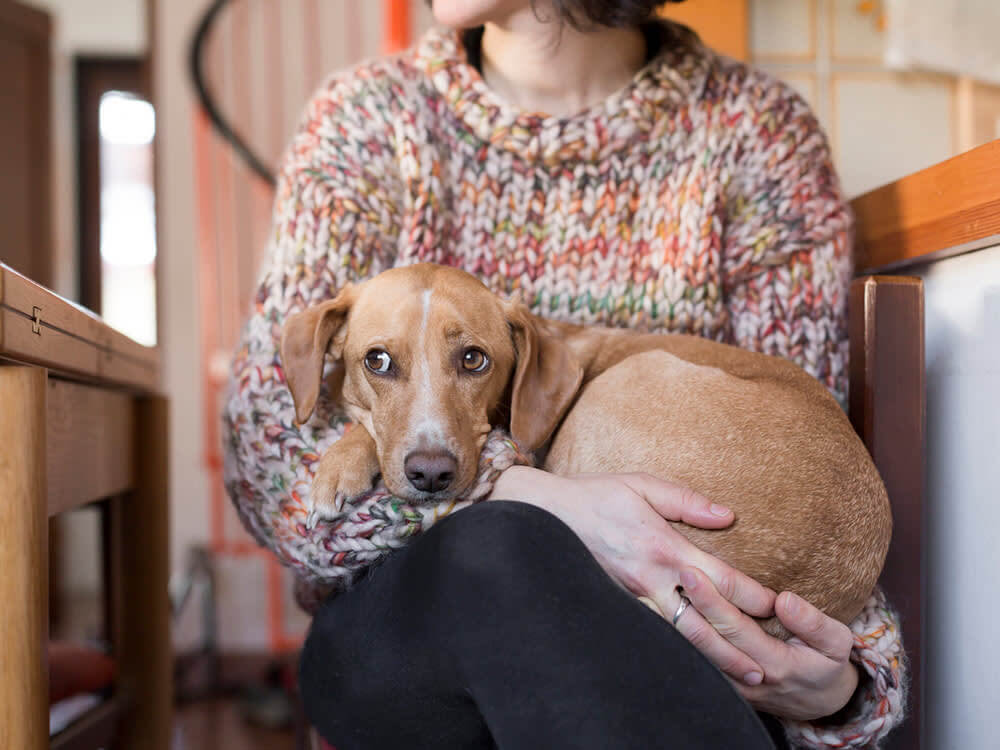The bond we share with our dogs is undeniably special, filled with loyalty, companionship, and love.
So, when someone gives away your beloved furry friend without your permission, the emotions of shock, anger, and heartbreak can be overwhelming.
Losing a dog under such circumstances is a distressing experience, but there are steps you can take to address the situation and find a resolution, including:
- Communicating
- Taking legal action
- Mediation
Let’s explore the steps in detail:
1. Communicate and Reason Directly With the Person Who Gave Away Your Dog
Before taking any actions, try reaching out to the person who gave away your dog.
They might have misunderstood the situation or believed they were acting in the best interest of the dog.
Initiate a calm and open conversation to express your concerns and feelings about their decision.
Explain how much your dog means to you and the impact this situation has had on your life.
You can also ask them to provide more insight into their reasoning.
This can help you understand whether they genuinely believed they were acting in the dog’s best interest or if there was a misunderstanding that can be resolved through communication.
But if they’re not willing to cooperate, let them know that you plan to take further steps (including taking legal action) if they don’t promptly give your dog back.
2. Take Legal Action
If communication proves unsuccessful, you may need to explore legal options.
In most jurisdictions, pets are considered personal property, and giving away someone else’s property without permission is considered theft.
When it comes to taking legal action, you have two options:
A. Small Claims Court
In most jurisdictions, small courts are equipped and ready to handle cases regarding dog ownership or custody.
So, depending on the circumstances, you might consider taking the case to small claims court.
This could potentially help you recover monetary damages for emotional distress and any costs associated with trying to locate and recover your dog.
There is a small caveat worth noting you if you decide to take your case to small claims court: Even if the court establishes that the dog is legally yours, they may not force the person who gave your dog away to give it back. Instead, you will be awarded money damages (in this situation, the worth of your dog).
B. Consult an Attorney:
If you have doubts about taking the case to small claims court, you have the option of working with an attorney.
Consult with an attorney who specializes in animal law to understand your rights and potential courses of action.
An attorney experienced in pet-related legal matters will guide you through the legal process and help you determine the best approach to reclaim your dog.
Pro Tip: Be Ready to Prove Ownership of your Dog
To strengthen your case, you need to gather relevant information that can help prove your ownership of the dog.
In most cases, all you need are your dog’s records, which you probably already have in place, including.
- Registration and license
- Veterinary records
- Past receipts of medications, food, or toys
- Microchip records
- Pedigree registries
- Adoption records
- Recent pictures or videos of you with your dog
- Written statements from friends or neighbors who have seen you with the dog
Bonus Tip: Always ensure that you regularly update your records and keep duplicates on hand in case you ever need to provide evidence of your dog’s ownership.
Learn more here: How to Prove Ownership of a Dog
Other Key Factors to Consider Before Pursuing Legal Action

Age Consideration
If you are a minor, the dog typically falls under the ownership of your parents, granting them the authority to decide its fate.
But if you are of legal age, the situation hinges on the circumstances surrounding your absence.
If you left your home and dog behind without intent to return, your parents might have been within their rights to give the dog away.
On the other hand, if you were on a brief trip and had communicated your intention to return, the situation might constitute theft, and you can initiate legal action against the person who gave your dog away and the new individual who claims ownership.
Former Spouse or Partner
If the individual who gave away your dog happens to be an ex-spouse or former partner, the scenario can become more complex.
In the context of a divorce, the distribution of property adheres to the regulations of the state where the divorce proceedings occur.
While dogs are often (though not always) regarded as property, it’s advisable to explore the family laws specific to your state to determine the protocols for property division following a divorce.
This means that instead of handling the issue in small claims court (as we have highlighted above), you may be forced to go to a family court.
3. Seek Mediation
If communication has proven unsuccessful or if, for any reason, you are unable to pursue legal action, consider seeking the help of a mediator (a neutral third party). This could be a mutual friend, family member, or a professional mediator.
(To locate a professional mediator, simply conduct an online search using phrases like “mediation near me” or consider searching for “dispute resolution near me.”)
A neutral mediator can facilitate a conversation between you and the person who gave away your dog, helping both parties understand each other’s perspectives and work towards a solution.
When You Get the Dog Back

While it’s impossible to completely eliminate the risk of someone giving your dog away without your permission, there are steps you can take to minimize the chances of it happening again:
- Microchipping: Ensure your dog is microchipped and that the information linked to the chip is up-to-date. This can greatly increase the likelihood of your dog being returned if they are found. Chances are that person who had your dog may have chipped the dog before returning it to you. Update the chip accordingly.
- Trust Wisely: Unfortunately, this experience may make you more cautious about who you trust with your dog. While it’s important to maintain positive relationships with friends, family, and neighbors, exercise caution when entrusting your dog’s care to others. In particular, ensure that the person who gave away your dog do not have access to your dog again.
Closing Thoughts
The pain of having someone give away your dog without your permission is a unique and deeply emotional experience.
Hopefully, there are practical steps you can take to address the situation and increase the chances of reuniting with your furry friend.
Remember that you’re not alone – there are resources and support available (including below posts) to help you navigate this difficult journey and bring your dog back where they belong: by your side.
- Someone Has My Dog And Won’t Give It Back: What Can I Do?
- If Someone Gives You A Dog, Can They Legally Take It Back?
- Can I Get My Dog Back After Rehoming?
- If You Feed A Stray Dog, Is It Legally Yours?
As an Amazon Associate, we may receive a small commission from qualifying purchases but at no extra cost to you. Learn more. Amazon and the Amazon logo are trademarks of Amazon.com, Inc, or its affiliates.

